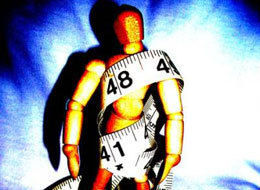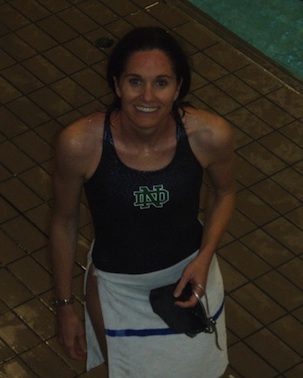
Psych Central has just launched another super blog, authored by Psych Central contributing writer Margarita Tartakovsky on the topic of eating disorders. Tartakovsky’s blog, called “Weightless,” covers a variety of different angles on this topic, and I was honored to be one of the first interviews on the blog. You may find my interview by going to Weightless by clicking here. I have excerpted some of the questions and answers below.
1. How and when did your eating disorder start? What do you think contributed to it?
My eating disorder started in the sixth or seventh grade, once I began to dance (ballet) seriously and get pressured by my dance instructors to maintain a willowy figure. By the time I was in eighth grade, I wanted to pursue becoming a professional ballerina, and to do so (at that time … I hear the pressure on young dancers is less now) pretty much required watching absolutely everything you put in your mouth. By the time I was in ninth grade, I was no longer menstruating and weighed 103 pounds (at 5″8′).
Even if I hadn’t pursued dance, however, I was extremely susceptible to an eating disorder at that time. My parents separated when I was in fifth grade, and our home life was a bit of a mess in the years that followed. As so many adolescents do, I manipulated my relationship with food because it was one thing that I could control … the only thing at that time, and so it gave me a false sense of power, which was very seductive.
2. Many women with eating disorders are reluctant to seek treatment. Some describe their eating disorder as a friend and, as a result, tend to be very protective and secretive about it. What motivated you to seek treatment?
I didn’t really seek treatment. Treatment sought me. What I mean was that it wasn’t until my freshman year at college that I really admitted to having an eating problem and started to ask myself the hard questions about what might be lurking behind it. Throughout high school, I simply transferred my eating problems to alcohol abuse. It was only when I gave up drinking, right before I graduated from high school, that I could begin to heal.
So when I asked a counselor at school early my freshman year where I could find a support group for my drinking, she invited me to come back, suspecting there was more to my story than the need to stay away from booze. She is the one who confronted me with my eating problem, and also my depression and OCD.
3. Eating disorders are tremendously treatable but the key is to find the right treatment. How did you go about seeking services?
I was tremendously blessed to treat my eating disorder while attending Saint Mary’s College in Notre Dame. Since it is an all women’s college, the school provided excellent resources. For example, one semester I logged in everything I ate into a nutrition software program. That way, with the help of my counselor, it could guide my diet, and let me know if I was eating enough calories, the right kinds of foods, etc.
My counselor helped me to begin eating three meals a day. I entered a contract whereby I would have to tell her if I started to skip meals. In many ways, that first year of recovery–my freshman year at college–was like starting to learn healthy living from scratch. It didn’t feel right, because my life had been so unmanageable from the beginning.
Click here to continue reading the interview.
* Click here to subscribe to Beyond Blue and click here to follow Therese on Twitter and click here to join Group Beyond Blue, a depression support group. Now stop clicking.

